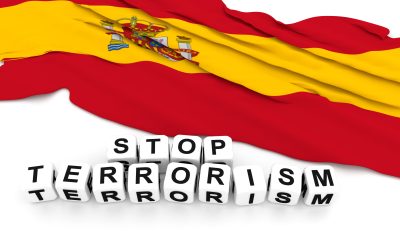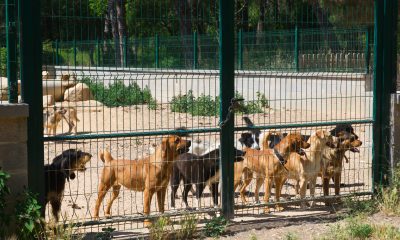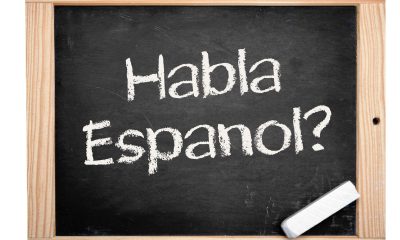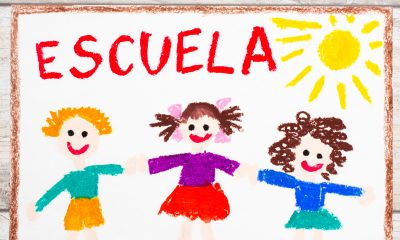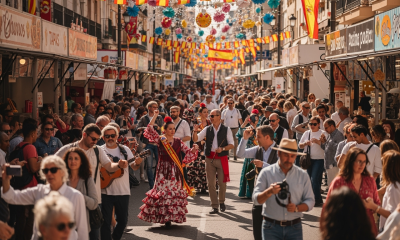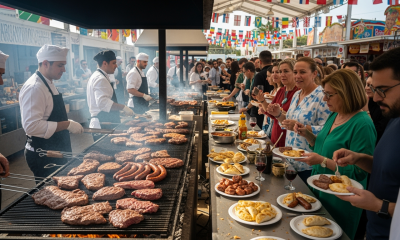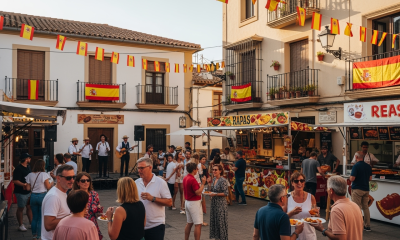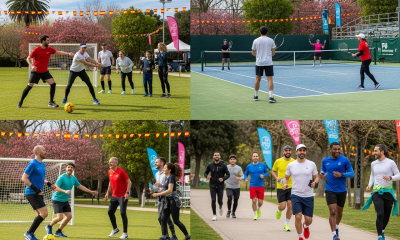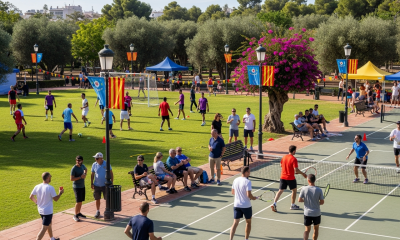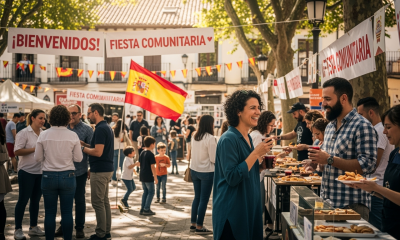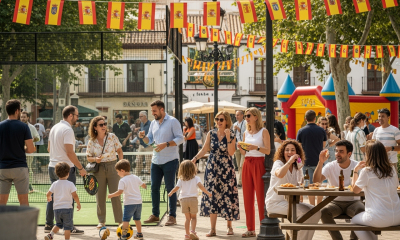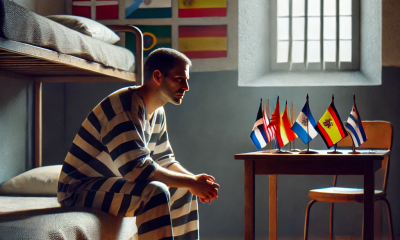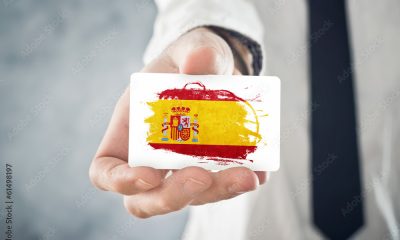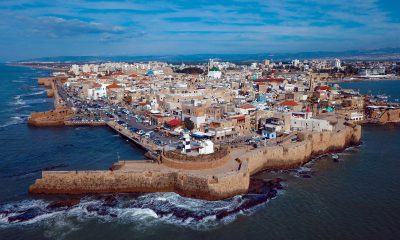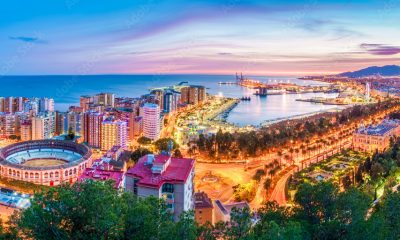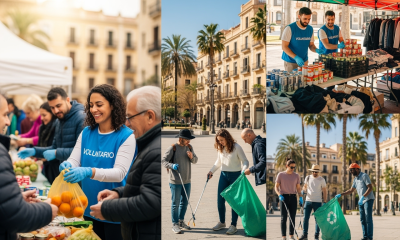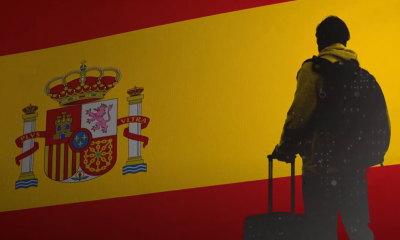Cultural
Unexpected cultural differences: What surprises most expats in Spain

Published: August 2025
Moving to Spain is an adventure, but even the most prepared expats are often caught off guard by some of the unique cultural differences that shape daily life. From social etiquette to work habits and time perception, Spain has its own rhythm and unwritten rules. Here’s what surprises most newcomers—and how you can embrace the Spanish way of life!
The Spanish approach to time
“Mañana, mañana” isn’t just a saying—it’s a mindset! Punctuality is flexible, and meetings or social gatherings often start later than scheduled. Don’t be offended if someone arrives 10–15 minutes late; it’s normal, especially in social settings.
Social life happens outdoors
Spaniards love to socialize outside—in plazas, cafés, and parks. It’s common to see families, friends, and even business contacts meeting for coffee or tapas late into the evening. The vibrant street life is a big part of Spanish culture.
Direct communication (but always polite)
Spaniards are known for being direct, but rarely rude. You might notice more open discussions or passionate debates, even in professional settings. Don’t mistake this for aggression—it’s just part of the culture!
Meal times are later than you expect
Lunch is typically between 2–4pm, and dinner often starts after 9pm. Restaurants may not even open until 8pm. Adjusting your eating schedule is one of the biggest (and most delicious) cultural shifts.
The importance of the siesta
While not as widespread as in the past, many small shops and businesses still close for a midday break (usually 2–5pm), especially outside big cities. Plan errands accordingly!
Family comes first
Family ties are very strong in Spain. It’s common for several generations to live close by and gather regularly. Don’t be surprised if your Spanish friends prioritize family events over other plans.
Paperwork and Bureaucracy
Spanish bureaucracy is famous for being slow and complex. Patience, persistence, and a sense of humor are your best assets when dealing with official paperwork.
Celebrations and festivals
Spain loves a good celebration! From local fiestas to national holidays, expect loud, colorful, and long-lasting festivities. Don’t miss the chance to join in—locals welcome newcomers with open arms.
Personal space and physical contact
Greetings often include cheek kisses (dos besos) or a friendly touch on the arm. Personal space is smaller than in Northern Europe or the US, so don’t be surprised by close conversations.
Tips for cmbracing spanish culture
- Be open-minded and patient—things work differently, but that’s part of the charm.
- Try to learn some Spanish, even just a few phrases. Locals appreciate the effort.
- Join local events and activities to meet people and understand the culture better.
- Accept invitations, even if they’re last minute—spontaneity is valued!
Why do Spaniards eat dinner so late?
Dinner is traditionally served late due to the long midday break and the warm climate, which encourages socializing in the cooler evening hours.
Is it rude to arrive late to a meeting in Spain?
In social settings, being 10–15 minutes late is normal. For business, it’s best to be on time, but don’t be surprised if meetings start a bit late.
Why do Spaniards eat dinner so late? Dinner is traditionally served late due to the long midday break and the warm climate, which encourages socializing in the cooler evening hours. Is it rude to arrive late to a meeting in Spain? In social settings, being 10–15 minutes late is normal. For business, it’s best to be on time, but don’t be surprised if meetings start a bit late. What should I do if I get frustrated with Spanish bureaucracy? Stay calm, bring all your documents, and ask for help if needed. Persistence and politeness go a long way. Do I need to speak Spanish to live in Spain? It’s possible in big cities, but learning some Spanish will make daily life much easier and help you connect with locals. What is the “siesta” and does it still exist? The siesta is a traditional midday break. While less common in big cities, many small towns and businesses still observe it. How do Spaniards greet each other? Usually with two cheek kisses (even between women and men), or a handshake in business settings. Is it easy to make friends in Spain? Yes, Spaniards are generally welcoming—especially if you join local events or activities. Why is paperwork so slow in Spain? Bureaucracy can be complex due to tradition and administrative processes. Patience is essential! Are festivals open to foreigners? Absolutely! Locals love when expats join in and experience Spanish culture. What’s the best way to adapt to Spanish life? Be flexible, embrace the differences, and participate in community life as much as possible.
Disclaimer: This article is for informational purposes only and based on expat experiences. Your own journey in Spain may differ—enjoy the adventure!
Cultural
Best Spanish festivals and how expats can participate (2025 edition)

Published: August 2025
Spain is world-famous for its vibrant festivals – from wild street parties to solemn processions and everything in between. For expats, joining in these celebrations is one of the best ways to experience Spanish culture, meet locals, and make lifelong memories. Here’s your guide to the most popular Spanish festivals in 2025, plus tips on how foreigners can join the fun.
Why festivals matter in Spain
Festivals (fiestas) are at the heart of Spanish life. Each town, city, and region has its own unique celebrations, often rooted in history, religion, or local traditions. These events bring communities together, break down barriers, and create unforgettable experiences for everyone – locals and newcomers alike.
Top Spanish festivals in 2025
- La Feria de Abril (Seville): A week of flamenco, horses, and casetas. Join in by renting a traditional costume and dancing until dawn.
- San Fermín (Pamplona): Famous for the running of the bulls. Expats can watch safely from balconies or join the parades and concerts.
- La Tomatina (Buñol): The world’s biggest tomato fight! Tickets are required – book early for 2025.
- Las Fallas (Valencia): Giant sculptures, fireworks, and street parties. Volunteer to help build a falla or join a local group.
- Semana Santa (nationwide): Dramatic Easter processions in cities like Málaga, Seville, and Granada. Respectful participation is welcome.
- Feria de los Países (Fuengirola): Celebrate global cultures with food, music, and dance – perfect for expats!
- Fiesta de San Juan (coastal towns): Bonfires and beach parties on the shortest night of the year. Bring friends and jump the flames for luck.
How expats can join in
- Check your local town hall or tourist office for festival dates and activities.
- Look for expat groups or language exchanges organizing group visits.
- Volunteer for setup or events – many festivals welcome extra hands.
- Respect local customs and dress codes, especially for religious events.
- Bring cash, comfortable shoes, and a sense of adventure!
Useful links
FAQ
Disclaimer: This article is for informational purposes only. Always check official sources for dates and details before attending.
Cultural
International Feria Fuengirola 2024: a celebration of cultures and community

International Feria Fuengirola 2024: a celebration of cultures and community
Published: August 2025
Every spring, Fuengirola on the Costa del Sol transforms into one of Spain’s most vibrant showcases of international culture. The International Feria Fuengirola—also known as Feria de los Países—brings together more than 30 countries for five unforgettable days of music, food, dance, and friendship. In 2024, the fairground once again welcomed tens of thousands of visitors, expats and locals alike, for a true celebration of diversity, unity, and joy.
A festival for everyone
The Feria is much more than just an event—it’s a living symbol of how people from all over the world can come together in Spain and create something unique. With more than 30 national pavilions, you can stroll from Spanish flamenco to Argentinian tango, from Finnish sauna culture to Peruvian ceviche, all in a single afternoon. The atmosphere is pure happiness: families, friends, and strangers laughing, dancing, and sharing experiences with almost no trouble or conflict—just five fantastic days of community spirit.
Highlights from around the world
Each country’s stand is a mini-embassy of culture. Spain’s own pavilion is always a crowd-pleaser, with regional food, live flamenco, and artisan crafts. The Argentinian stand draws crowds for its sizzling steaks and passionate tango shows, while Chile’s booth offers pisco sours and lively cueca dancing. Germany’s beer garden is a social hub, with bratwurst and folk music, while the UK and Ireland stands serve up fish & chips, Guinness, and live rock bands. Peru’s pavilion is a must for foodies, with ceviche and pisco cocktails, and Finland surprises many with smoked salmon, reindeer snacks, and even a pop-up sauna.
Beyond food and drink, each stand hosts cultural performances—traditional dances, live concerts, costume parades, and workshops for kids and adults. It’s not just about watching; visitors are encouraged to join in, try a dance, sample a dish, or learn a few words in a new language.
Family-friendly fun
The Feria is designed for all ages. There are children’s workshops, face painting, international games, and plenty of open space to run and play. Many families make a day of it, sampling treats from different countries and enjoying the colorful parades that wind through the fairground each afternoon.
Peaceful, positive atmosphere
What makes the International Feria Fuengirola truly special is its peaceful, inclusive vibe. Despite the crowds and the many different languages and cultures represented, there’s virtually no trouble—just people enjoying life together. It’s a powerful example of how multicultural Spain really is, and how expats and locals can celebrate side by side.
Practical tips for visiting
- Dates: The 2024 edition ran from 1–5 May. The fair is held annually, usually around the same dates.
- Location: Fuengirola Fairground (official site), easily reached by train, bus, or car.
- Admission: Entry is free. Food, drinks, and some activities are paid per item.
- Opening hours: Stands typically open from midday to late evening.
- Family tips: Arrive early for easier parking and less crowded stands. Bring cash for food and souvenirs.
- Accessibility: The fairground is flat and accessible to wheelchairs and strollers.
- What to bring: Comfortable shoes, sunscreen, and an open mind!
Useful links
- Official Feria website
- Sur in English – Feria news
- YouTube: Feria de los Pueblos 2024 walking tour
- MamaMalaga – Feria review
Gallery: authentic moments from International Feria Fuengirola

FAQ: International Feria Fuengirola
When is the Feria held? Usually in early May. The 2024 edition ran from May 1–5. Check the official website for next year’s dates. Is the Feria suitable for children? Yes, there are activities, workshops, and plenty of space for families. How much does it cost to enter? Entry to the fairground is free. Food, drinks, and some activities are paid per item. Can I buy tickets in advance? No ticket needed for entry, but some shows or tastings may require advance booking. Are pets allowed? Pets are generally not allowed due to crowds and noise, but check official info for exceptions. How do I get there? The fairground is in central Fuengirola, close to the train station and with good parking options. Can I volunteer or participate as a performer? Contact the organizers via the official site for info on participation. Is the event accessible for people with disabilities? Yes, the fairground is flat and accessible for wheelchairs and strollers. Which countries are represented? Over 30 countries, including Spain, Argentina, Chile, Germany, UK, Ireland, Peru, Finland, and many more. Where can I find more photos and videos? Visit the official Feria gallery or search “Feria de los Países Fuengirola” on YouTube and Instagram.
Disclaimer: This article is for informational purposes only. All photos and screenshots are credited to their original creators. Please contact us if you would like your images featured or credited.
Cultural
Tap into community events and festivals: how expats can connect in Spain

Published: August 2025
Spain is world-famous for its lively community events and colorful festivals, which are at the heart of local culture. For expats, participating in these events is one of the best ways to meet people, learn about Spanish traditions, and feel truly at home. Whether you live in a big city or a small village, there’s always a fiesta, market, or neighborhood gathering to join. Here’s your guide to making the most of Spanish community life as a foreigner.
Why community events matter for expats
Community events are where Spanish hospitality shines. They bring together locals and newcomers, young and old, for shared experiences—food, music, dance, and celebration. For expats, joining these gatherings is a fast track to making friends, practicing Spanish, and discovering what makes each region unique.
Types of events you can join
- Local fiestas: Every town and city has its own annual festival, often featuring parades, concerts, fireworks, and traditional costumes. Check your town hall’s website for dates and details.
- Food and wine fairs: Spain’s regions celebrate their culinary heritage with markets, tastings, and cooking contests. Don’t miss the chance to try local specialties!
- Sports tournaments: From fun runs to football matches and cycling races, sports events are open to everyone—join as a participant or a fan.
- Music and dance festivals: Flamenco, jazz, classical, and pop—there’s something for every taste. Look for open-air concerts and dance workshops.
- Charity events and volunteering: Get involved in community projects, fundraisers, or environmental clean-ups. It’s a great way to give back and meet like-minded people.
How to find out about events
- Check your local town hall
- Follow local Facebook groups and WhatsApp chats
- Look for posters in shops, cafés, and community centers
Tips for joining in
- Don’t be shy—locals are usually happy to welcome newcomers, especially if you show interest in their traditions.
- Bring friends or go alone—either way, you’ll meet people.
- Try local food, join a dance, or volunteer for an activity to break the ice.
- Learn some basic Spanish phrases to help you join conversations.
- Always check if events are free or require tickets in advance.
Useful links
How can I find out about local festivals in my town? Check your town hall’s website, local Facebook groups, and posters in shops and cafés. Are community events open to foreigners? Yes, Spanish events are very inclusive—everyone is welcome! What should I bring to a local festival? Comfortable shoes, some cash, and an open mind—many events involve walking, dancing, and trying new foods. Do I need to speak Spanish to participate? Not necessarily, but learning a few phrases helps. Many locals are happy to help you practice. Are there family-friendly community events? Absolutely—most festivals and fairs have activities for children and families. How can I volunteer at community events? Contact the organizers via town hall, community centers, or event websites. Is it safe to attend large events? Yes, but as with any large gathering, keep an eye on your belongings and follow local advice. Can I join in traditional dances or processions? Yes! Locals love when newcomers join in—just follow the crowd and have fun. What’s the best way to meet people at events? Be open, start conversations, and don’t hesitate to join group activities. Where can I find more information about Spanish festivals? Spain.info and your local town hall are the best sources for up-to-date event info.
Disclaimer: This article is for informational purposes only. Always check official sources for event dates and details.













